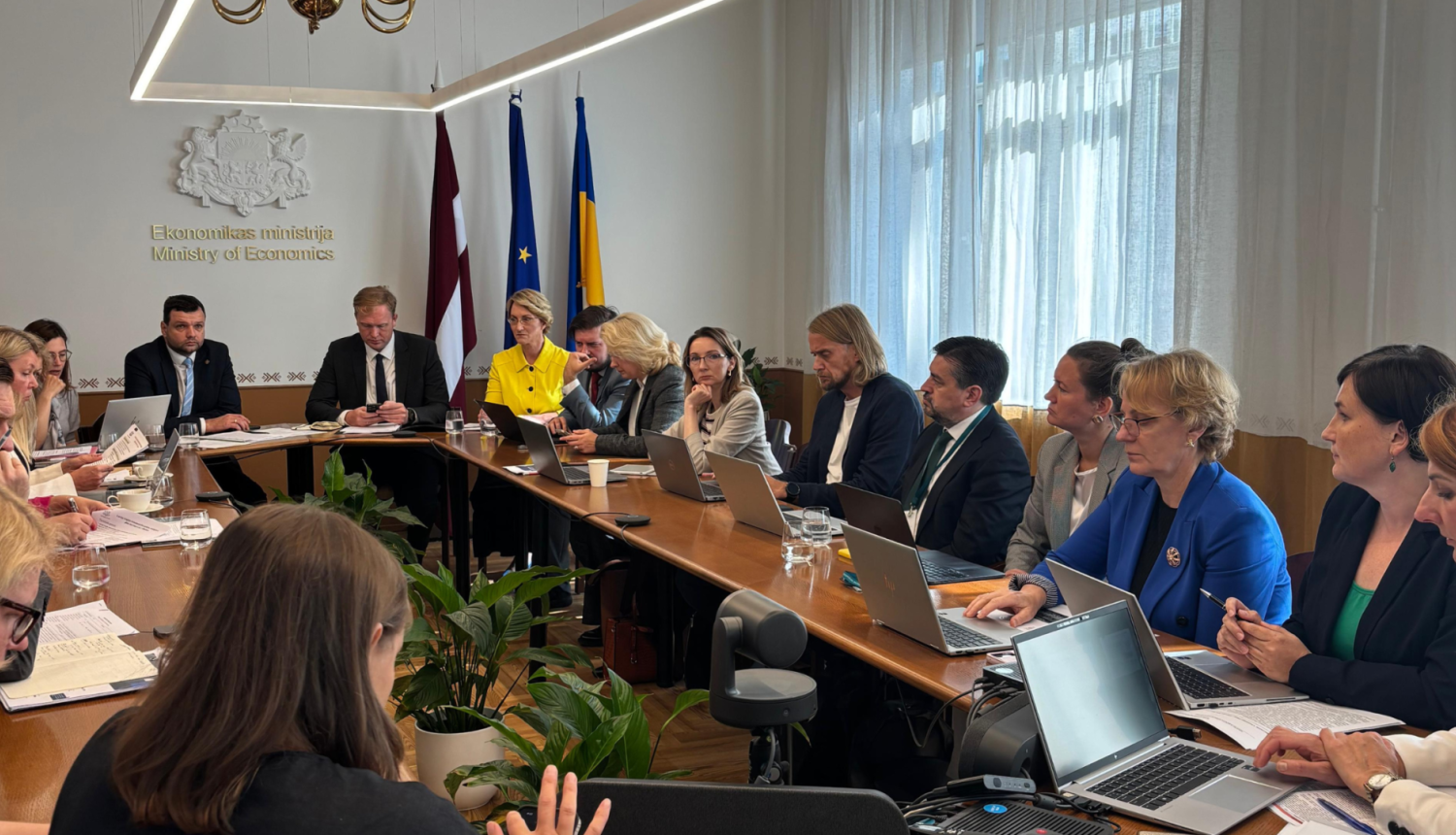Translated using ChatGPT service.
On Wednesday, 3 September, a meeting of the Human Capital Development Council (HCDC) took place, where a wide range of issues related to human capital availability and development were discussed, including a report on the progress in implementing the human capital development management model.
Representatives from the Ministry of Economics (MoE), Ministry of Education and Science (MoES), Ministry of Welfare (MoW), Ministry of Agriculture (MoA), Ministry of Climate and Energy (MoCE), and other relevant institutions attended the meeting. MoE, MoES, and MoW agreed to conduct additional analyses and organize more detailed discussions, taking into account the functions of each ministry and avoiding duplication.
MoE presented an assessment of the independent expert certification and competence assurance system for building energy efficiency in Latvia, highlighting its compliance with EU directive requirements regarding both expert competence levels and equal access to certification. The ministry emphasized that the established system also addresses the issue of specialist availability.
MoA provided information on planned support measures for human capital development in the agriculture sector and agreed that MoE will take these into account when working on labor market needs forecasting.
MoES presented proposals for integrating labor market priorities into the national higher education commissioning process, in line with feedback from the previous HCDC meeting by the Latvian Chamber of Commerce and Industry (LCCI) regarding budgeted higher education placements and their alignment with labor market needs. The parties agreed that strategic commissions for universities will henceforth be approved by HCDC. MoES also provided information on the implementation conditions for the Skills Fund project. HCDC decided that MoE will be a cooperation partner for all Skills Fund projects and will monitor learning outcomes.
“The creation of a unified human capital development management model is a complex process. However, its implementation cannot be postponed, as it will promote more effective inter-institutional cooperation and resource use. Work continues to ensure the development of labor-market-relevant human capital, increase productivity, and strengthen innovation potential,” said Minister of Economics Viktors Valainis.
MoE previously reported that, in cooperation with MoES, MoW, and social partners, work is underway to develop a unified systemic approach, which includes identifying labor market needs, developing a flexible and labor-market-relevant education system, monitoring education quality, and establishing a single system for applying to training and consultations in the context of employment policy. According to the Cabinet of Ministers decision on 26 August, 2025, HCDC is to agree on specific tasks and the necessary amendments to regulations for implementing the human capital development management model in adult education by 1 October 2025.
The next HCDC meeting is scheduled for October 2025, during which ministries will report on progress in implementing the human capital management model and review immigration-related indicators to implement a unified policy that attracts labor-market-relevant human capital, ensures its integration, and promotes awareness that Latvian workers are a priority in the labor market. The Ministry of the Interior, MoA, and the Investment and Development Agency of Latvia (LIAA) have been invited to report on immigration issues.
HCDC is a collegial body that brings together the Ministries of Economics, Education and Science, and Welfare. It was established to implement coordinated inter-ministerial cooperation and make decisions on planning, developing, implementing, and monitoring necessary labor market reforms, promoting the development and availability of human resources according to future labor market demand and structural economic changes to create higher value-added benefits for society as a whole.



